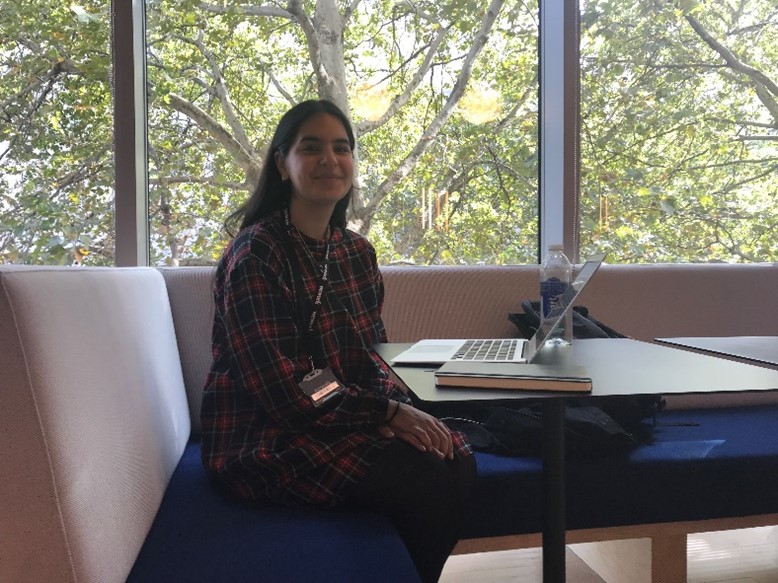Name of Student: Umaira Navaid
Degree Subject: BA History and Politics, MA Applied Security and Strategy
Job Title: Research Intern
Company Name: Ridgeway Information Ltd
Type of Internship: Access to Internships (A2I), Student Business Partnerships (SBPs)
Description of Company: We work with major corporates, not-for-profit and public sector organisations. Our current and previous clients include the United Nations, the UK Foreign, Commonwealth & Development Office, the European Union, the UK Gambling Commission, multinationals and private clients. We give our clients the confidence to identify opportunities, mitigate risks, tackle challenges and understand the landscapes they inhabit. We do this by providing verifiable insight gained through expert research and analysis of client-supplied and open sources.
What were your key duties and responsibilities during your internship?
My key duties and responsibilities were to help research and write reports on nuclear proliferation. I also created resources for some of the training schemes the company provides.
What outputs and outcomes did you deliver for your employer?
I produced a report for the IAEA on Pakistan’s nuclear complex using my Urdu language skills. I also helped produce two other reports on Taiwan and Jordan. I planned and produced a short activity for people who undertake the OSINT course with Ridgeway. My skills in Urdu led the IAEA to have a better understanding of what is being written and posted about nuclear ongoings in Pakistan.
What was your biggest achievement on your internship?
I was tasked with researching and writing about Pakistan and its new Nuclear Complex from sources in Urdu. I was able to read and translate sources that would have otherwise been unusable. I wrote a report summarising my findings.
What did not go so well on your internship? How did you overcome any challenges?
It was difficult to find much information at first and I spent many days without any relevant information. However, with further encouragement, I was later able to find better details and make the most of my findings.
Skills Learnt
- Ability to Work Under Pressure
- Communication
- Team Work and Collaboration
- Problem Solving
- Time and Work Load Management
Attributes Developed
- Confidence
- Initiative
- Independence
- Work Ethic
- Perseverance
Your message to other students considering a similar job role, organisation or sector?
“My internship was both fun and hard work. My colleagues were extremely friendly and the Access to Internship team is super helpful. I worked on a number of projects with Ridgeway and was impressed with the amount of autonomy I was given during my time here. I was also given good career and life advice and feel like I have a better idea of what I want to do in the future and my options.”










